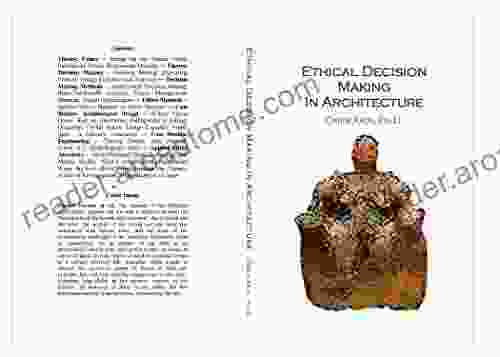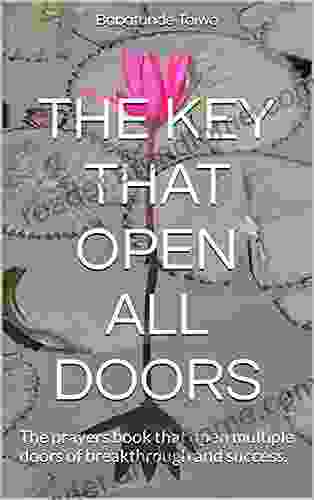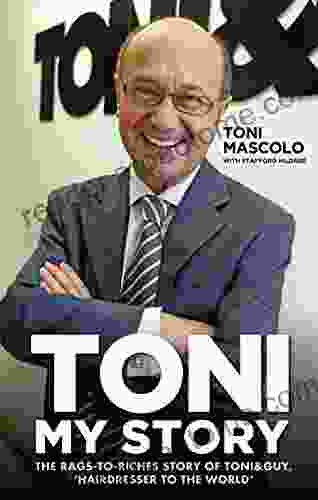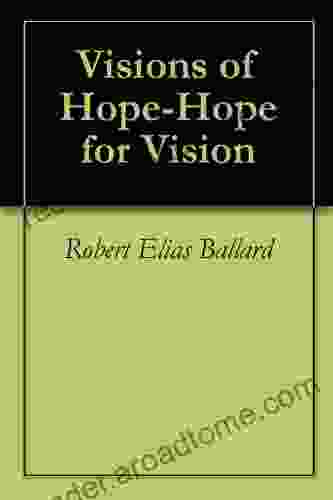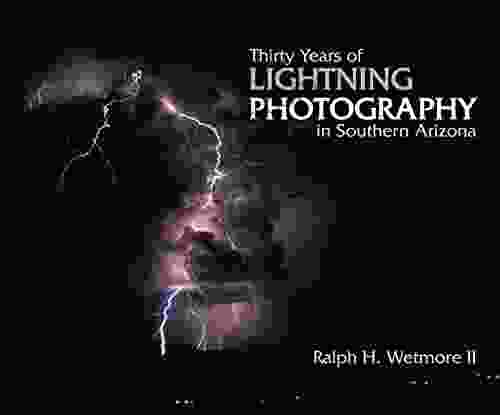Theories, Methods, Case Studies, and Anecdotes: A Comprehensive Guide to Applied Ethics

Ethics is the study of right and wrong, and it is a field that has been studied for centuries. There are many different ethical theories and frameworks, and each one has its own strengths and weaknesses. In this article, we will explore some of the most common ethical theories and frameworks, and we will discuss how they can be applied to real-world situations. We will also provide some case studies and anecdotes to help illustrate the concepts we discuss.
There are many different ethical theories, but the most common ones can be divided into two main categories: deontology and teleology. Deontology is the theory that actions are right or wrong based on their inherent qualities, regardless of their consequences. Teleology, on the other hand, is the theory that actions are right or wrong based on their consequences.
Some of the most common deontological theories include:
5 out of 5
| Language | : | English |
| File size | : | 35061 KB |
| Text-to-Speech | : | Enabled |
| Screen Reader | : | Supported |
| Enhanced typesetting | : | Enabled |
| Word Wise | : | Enabled |
| Print length | : | 280 pages |
| Lending | : | Enabled |
- Kant's Categorical Imperative: This theory states that actions are right or wrong based on whether they can be universalized. In other words, an action is right if it can be done by everyone, without contradiction.
- Rule Utilitarianism: This theory states that actions are right or wrong based on whether they conform to a set of rules that are designed to maximize utility.
- Act Utilitarianism: This theory states that actions are right or wrong based on whether they produce the most good for the greatest number of people.
Some of the most common teleological theories include:
- Egoism: This theory states that actions are right or wrong based on whether they benefit the individual.
- Altruism: This theory states that actions are right or wrong based on whether they benefit others.
- Hedonism: This theory states that actions are right or wrong based on whether they produce pleasure or happiness.
There are many different ethical methods that can be used to make decisions. Some of the most common methods include:
- Reasoning: This method involves using logic and evidence to determine the right course of action.
- Intuition: This method involves relying on one's gut instinct or feelings to determine the right course of action.
- Experience: This method involves relying on one's past experiences to determine the right course of action.
- Authority: This method involves relying on the advice of experts or authorities to determine the right course of action.
Case studies are a great way to learn about ethics and how it can be applied to real-world situations. Here are a few examples of case studies that illustrate some of the ethical issues that we have discussed:
- The Trolley Problem: This is a classic ethical dilemma that involves a runaway trolley that is heading towards five people. You are standing next to a lever that can divert the trolley onto a different track, but ng so will cause the trolley to kill one person. Do you pull the lever?
- The Heinz Dilemma: This is another classic ethical dilemma that involves a man who is desperate to save his wife's life. The only way to save her is to steal a drug that he cannot afford. Do you steal the drug?
- The Prisoner's Dilemma: This is a game theory scenario that involves two prisoners who are being interrogated. Each prisoner is told that if they confess and their partner does not, they will go free. However, if both prisoners confess, they will both go to prison for a longer period of time. Should each prisoner confess?
Anecdotes are short stories that can be used to illustrate ethical concepts. Here are a few examples of anecdotes that can help you understand the importance of ethics:
- The Good Samaritan: This is a story about a man who is traveling on a road when he is robbed and beaten. A Samaritan comes along and helps the man, even though he does not know him.
- The Whistleblower: This is a story about a person who reports wrongng within their organization. The whistleblower is often ostracized and punished for speaking out, but their actions can help to prevent further wrongng.
- The Ethical Dilemma: This is a story about a person who is faced with an ethical dilemma. They must decide between two courses of action, each of which has its own ethical implications.
Professional ethics are the ethical principles that govern the conduct of professionals in a particular field. These principles can vary depending on the profession, but they generally include the following:
- Honesty: Professionals must be honest in all of their dealings.
- Integrity: Professionals must maintain high standards of integrity.
- Objectivity: Professionals must be objective in their work.
- Confidentiality: Professionals must keep confidential information confidential.
- Competence: Professionals must be competent in their work.
Making ethical decisions can be difficult, but there are a few steps that you can follow to help you make the right choice. These steps include:
- Identify the ethical issue. The first step is to identify the ethical issue that you are facing. What are the different ethical considerations involved?
- Gather information. Once you have identified the ethical issue, you need to gather information about the situation. This information may include facts, opinions, and expert advice.
- Analyze the information. Once you have gathered information, you need to analyze it and determine the different ethical implications of each option.
- Make a decision. Once you have analyzed the information, you need to make a decision about what to do. This decision should be based on the ethical principles that you believe in.
- Evaluate your decision. Once you have made a decision, you should evaluate it to ensure that you are comfortable with it. You may also want to get feedback from others to help you make sure that you have made the right decision.
Ethics is a complex and challenging field, but it is also essential for making good decisions in our personal and professional lives. By understanding the different ethical theories, methods, and case studies, we can gain the tools we need to make ethical decisions that are in line with our values.
5 out of 5
| Language | : | English |
| File size | : | 35061 KB |
| Text-to-Speech | : | Enabled |
| Screen Reader | : | Supported |
| Enhanced typesetting | : | Enabled |
| Word Wise | : | Enabled |
| Print length | : | 280 pages |
| Lending | : | Enabled |
Do you want to contribute by writing guest posts on this blog?
Please contact us and send us a resume of previous articles that you have written.
Light bulbAdvertise smarter! Our strategic ad space ensures maximum exposure. Reserve your spot today!

 Walter SimmonsNot Just a Walk in the Park: Discover the Enchanting Beauty of Nepal's First...
Walter SimmonsNot Just a Walk in the Park: Discover the Enchanting Beauty of Nepal's First... Charles DickensFollow ·12.2k
Charles DickensFollow ·12.2k Colby CoxFollow ·17k
Colby CoxFollow ·17k Gabriel BlairFollow ·11k
Gabriel BlairFollow ·11k E.M. ForsterFollow ·15.2k
E.M. ForsterFollow ·15.2k Cameron ReedFollow ·19.5k
Cameron ReedFollow ·19.5k Brody PowellFollow ·17.3k
Brody PowellFollow ·17.3k Ryan FosterFollow ·7.8k
Ryan FosterFollow ·7.8k Adrien BlairFollow ·14.9k
Adrien BlairFollow ·14.9k
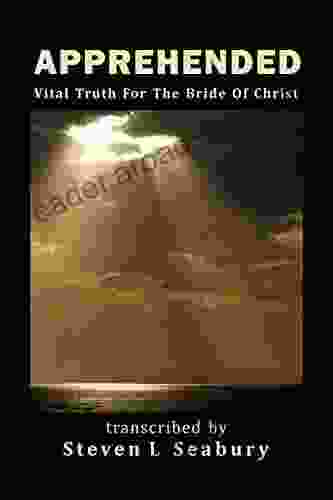
 Brady Mitchell
Brady MitchellUnveiling the Apprehended Vital Truth for the Bride of...
In the tapestry of life, where trials and...

 Eric Nelson
Eric NelsonDivine Energy Harmony Way: Embracing the Power Within for...
In the realm of personal...
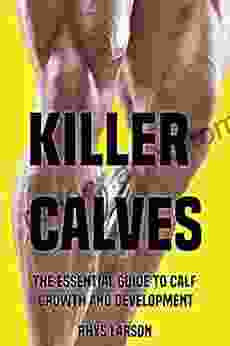
 Robert Louis Stevenson
Robert Louis StevensonUnlock the Secrets of Calf Growth and Development: A...
Are you an aspiring...

 Gerald Parker
Gerald ParkerPhysician Life In The Shadow Of Polio: A Harrowing and...
A Riveting Tale of Determination Amidst a...
5 out of 5
| Language | : | English |
| File size | : | 35061 KB |
| Text-to-Speech | : | Enabled |
| Screen Reader | : | Supported |
| Enhanced typesetting | : | Enabled |
| Word Wise | : | Enabled |
| Print length | : | 280 pages |
| Lending | : | Enabled |


